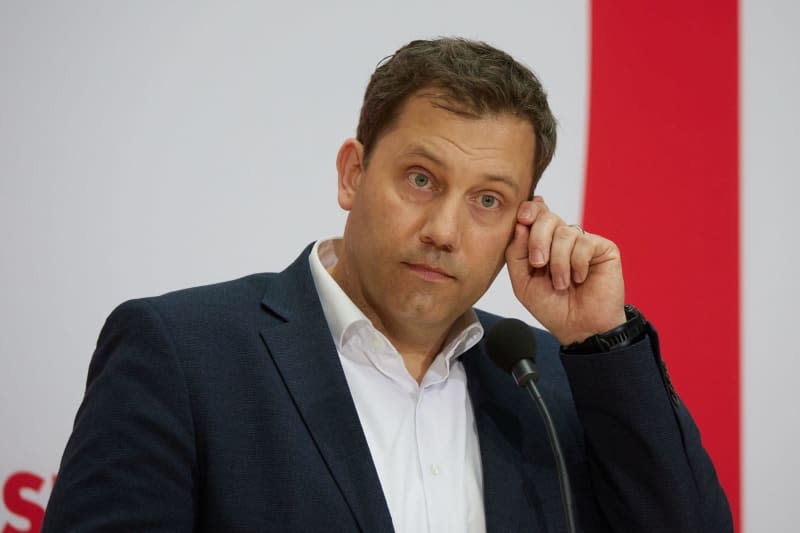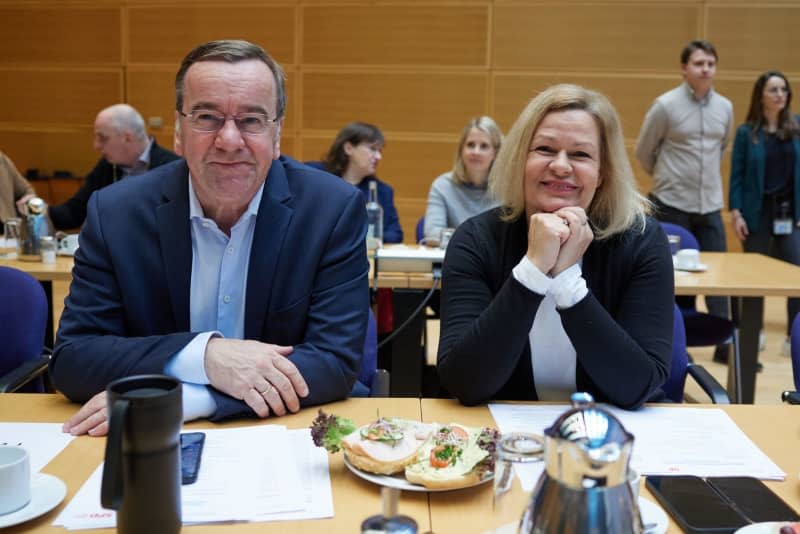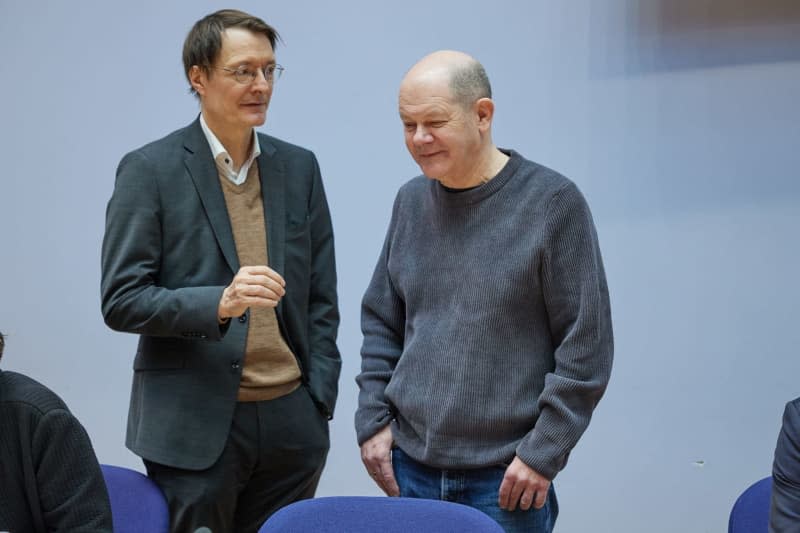Germany's Social Democrat leaders don't rule banning far-right AfD

- Oops!Something went wrong.Please try again later.
- Oops!Something went wrong.Please try again later.
The leadership of Germany's Social Democratic Party (SPD) said it does not rule out the possibility of banning the far-right Alternative for Germany (AfD) party, although it said this should be a last resort.
It should be "a clear option" to examine the unconstitutionality of the AfD if the findings by the intelligence service make the chances of success of such proceedings appear certain, according to a resolution passed by the SPD leadership on Saturday.
The classification of the AfD as a suspected right-wing extremist group by Germany's domestic intelligence service is the subject of an ongoing legal dispute.
It is clear that a party ban is the last resort in a democracy, Chancellor Olaf Scholz's party said: "However, democracy must never stand idly by while a party seeks to destroy it from within."
"For us, there is no question that the AfD is an extreme right-wing party that is steeped in nationalist ideology and threatens democracy," the resolution passed on Saturday states. The intelligence service continues to monitor the AfD, collate its findings and evaluate them, it noted.
Germany's intelligence services classified the AfD as a suspected right-wing extremist party in March 2021. A lower administrative court in Cologne, where the intelligence service is located, confirmed this assessment in 2022, allowing the office to monitor the party as a suspected case.
The AfD is mounting a legal defence against this. The proceedings at the Higher Administrative Court in Münster are still ongoing.
It is unlikely that an application for a ban will be submitted without the intelligence service categorizing the party as a whole as right-wing extremist. Such an application could be submitted by the lower house of parliament, the Bundestag, the federal government or the upper house, the Bundesrat. The Federal Constitutional Court would then have to make a ruling.
In the city-state of Bremen, the three governing parties - the SPD, Greens and Die Linke (The Left) - are endeavouring to ban the AfD. The parliamentary groups announced last week that the Bremen Senate should lobby for this at the federal level.
In the last few months, thousands of people have rallied against far-right extremism in Germany, and the AfD in particular.
The wave of protests was prompted by revelations in news reports that AfD officials joined a private meeting in Potsdam just outside Berlin in November with far-right extremists to discuss strategies to force immigrants out of the country.
The AfD's signature issue is a hard-line anti-immigration stance, and the party is profiting from increased concern among many German voters over rising numbers seeking asylum in the country.
The party is polling nationally at around 20%, amid high dissatisfaction with Chancellor Olaf Scholz's three-party coalition.



